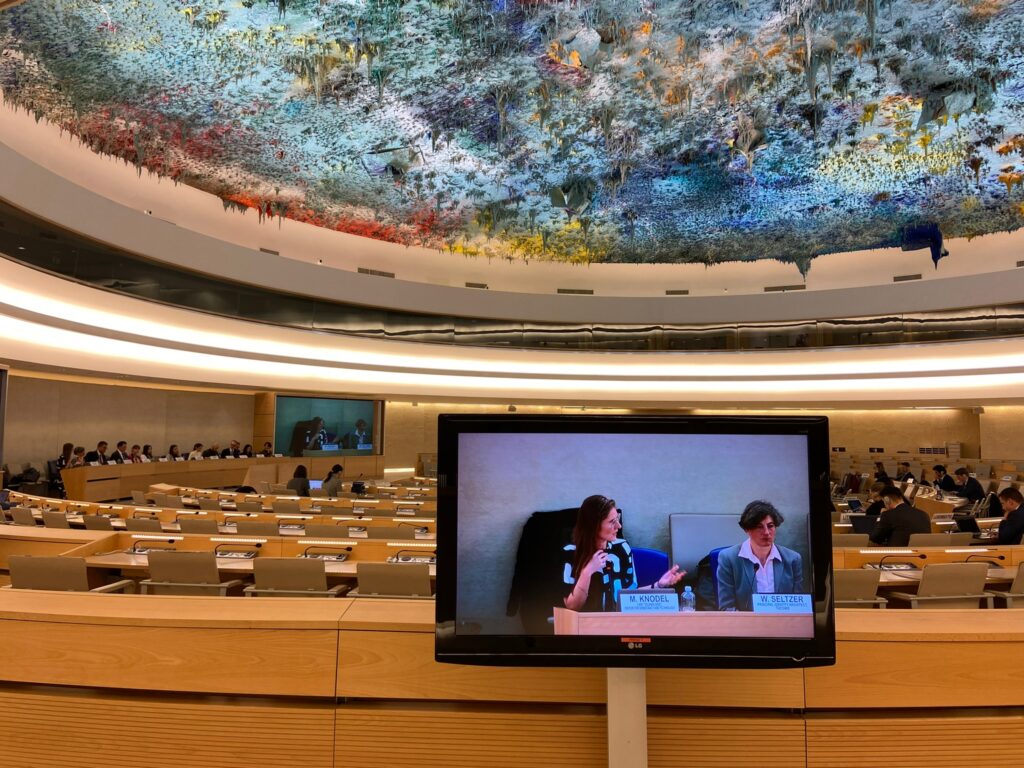On the relationship between human rights and technical standard-setting processes for new and emerging digital technologies
Governments, the private sector and civil society all have a stake in determining how digital technologies will be designed, implemented and governed. Technological artifacts, including those designed in global standards bodies, have embedded politics and a profound impact on human rights. The Center for Democracy & Technology (CDT) commends the United Nations’ (UN) Office of the High Commissioner on Human Rights (OHCHR) for taking on a year-long consultation on technical standards and human rights.
The OHCHR has invited relevant stakeholders to provide inputs for the preparation of a thematic report on this critical topic that will be presented at the Human Rights Council’s (HRC) 53rd session in 2023. In 2021, the HRC adopted resolution 47/23 on “New and emerging digital technologies and human rights.” The resolution requests the OHCHR submit a report after it “convene[s] an expert consultation to discuss the relationship between human rights and technical standard-setting processes for new and emerging digital technologies.”
This area of work has been ongoing for CDT for many years. We first participated in the World Wide Web Consortium (W3C) standardization in 1995 and attended our first Internet Engineering Task Force (IETF) meeting in 2001. We have long been actively involved in advocating for human rights through technical standards-setting bodies and educating civil society about the importance of these fora.
Because of this deep experience, we have worked with the OHCHR to help shape the consultation as well as also to contribute lessons from our subject matter expertise.
In addition, we co-hosted with the OHCHR and the Office of the UN Secretary-General’s Envoy on Technology an Open Forum at the global Internet Governance Forum (IGF) in December 2022. The event provided an opportunity to convene various stakeholders, particularly from academia, technical community, private sector and civil society at the IGF to discuss many of the questions put forward in the open call, such as “What are the potential ways through which concerns related to human rights in standard-setting processes can be facilitated?” Panelists for the event included Bilel Jamoussi from the ITU; Lars Eggert chair of the Internet Engineering Task Force; and Mehwish Ansari from ARTICLE 19.

Additionally, we were invited to the HRC headquarters in Geneva last month to the “HRC-mandated expert consultation on new and emerging digital technologies and human rights,” during which our interventions were heard in front of an audience of governments, private sector and other SDO stakeholders. We spoke about the challenges facing civil society participation and shared specific examples of where progress has been made.
To follow up on this engagement, we drafted our response to the open call. We are also happy to see and have been part of community engagement in submissions from W3C participants and the Internet Architecture Board (IAB). We stress:
- Open, multistakeholder standard-setting is an important venue for the discussion, analysis and support of human rights and we are committed to engaging in standard-setting in order to promote human rights.
- Multilateral treaty organizations are less well positioned to fully engage the community of affected people and civil society representation.
- More support is needed to bolster civil society participation and to make technical standard-setting more accessible and inclusive.

